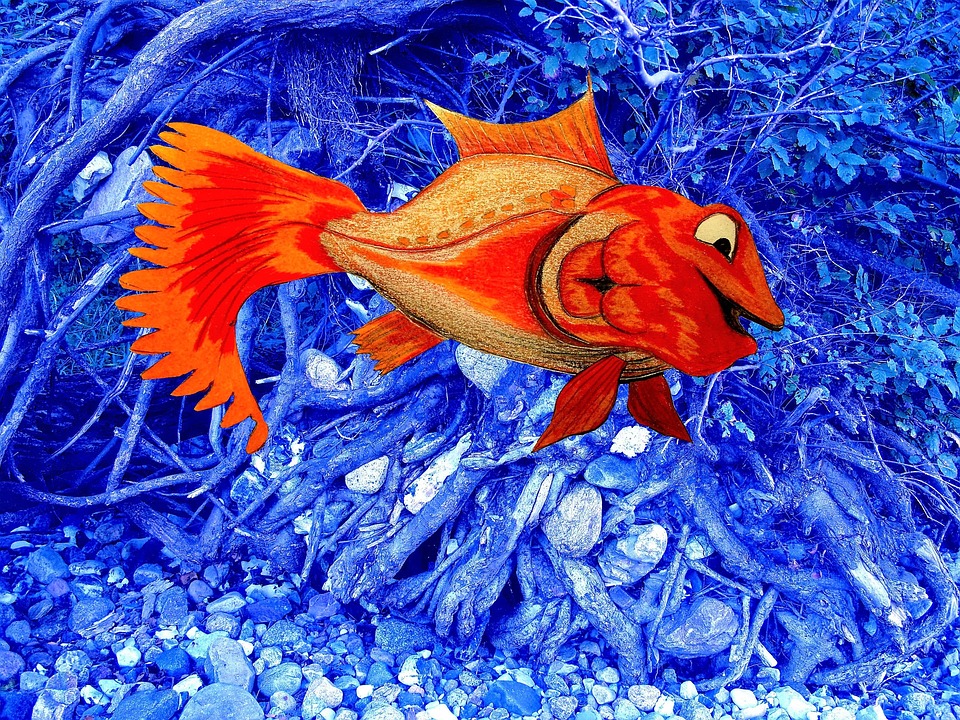Constipation is a common issue faced by fish tank owners that can have serious implications on the health and well-being of their aquatic pets. In this article, we will explore the causes, symptoms, prevention, and treatment options for constipation in fish. Additionally, we will address frequently asked questions to provide a comprehensive guide for fish care enthusiasts.
Constipation in fish can be caused by various factors, including overfeeding, lack of fiber in their diet, and water quality issues. Overfeeding is a common cause of constipation as excessive food consumption can overload the fish’s digestive system. Poor dietary choices, such as feeding only dry pellets or flakes without incorporating a variety of foods, can also contribute to constipation.
Lack of fiber in a fish’s diet is another leading cause of constipation. Fiber plays a crucial role in aiding digestion and promoting regular bowel movements. Without enough fiber, fish may struggle to pass waste, leading to constipation.
Water quality issues can also impact fish digestion and contribute to constipation. Improper water conditions, such as high levels of ammonia or nitrate, can stress fish and disrupt their digestive system. Maintaining optimal water conditions through regular monitoring, water changes, and filtration is essential to prevent constipation.
Identifying the symptoms of constipation in fish is crucial for early intervention. Decreased appetite, where fish show disinterest in food or display changes in feeding patterns, can be a sign of constipation. A bloated appearance, with swelling in the abdomen area or distended scales and protruding eyes, is another common symptom. Disrupted excretory behavior, such as decreased frequency of bowel movements or difficulty passing waste, may also indicate constipation.
Preventing constipation in fish involves implementing appropriate feeding practices, maintaining a balanced diet, and ensuring optimal water conditions. Understanding the correct amount and frequency of feeding, avoiding overfeeding, and providing varied diet options can help prevent constipation. A well-rounded diet with essential nutrients, including high-fiber foods, should be incorporated into the fish’s meals. Regular monitoring of water quality parameters, performing necessary water changes, and filtration are essential to maintain optimal water conditions.
When it comes to treating constipation in fish, adjusting the diet is often the first step. Adding fiber-rich foods to the fish’s diet can help alleviate constipation. Additionally, specialized fish laxatives or treatments may be utilized under the guidance of a veterinarian. In some cases, an Epsom salt bath can be beneficial in relieving constipation. The steps to perform a constipation-relieving bath and how Epsom salt aids in alleviating constipation should be followed carefully. However, it is important to note that severe cases of constipation may require consultation with a veterinarian for professional advice and the administration of medication.
Some frequently asked questions about constipation in fish include whether constipation can be fatal, the typical duration for constipation to resolve, and whether human laxatives can be used. It is important to note that severe or prolonged constipation can indeed be fatal for fish, as it can lead to blockages and other complications. The duration for constipation to resolve depends on various factors, including the severity of the constipation and the effectiveness of the chosen treatment. Human laxatives should not be used to treat constipation in fish, as they may contain ingredients that are harmful or toxic to aquatic animals.
Natural remedies for constipation in fish include adjusting the diet to incorporate fiber-rich foods and providing optimal water conditions. Some fish owners have reported success with using blanched peas as a natural laxative. However, it is important to consult with a veterinarian before attempting any natural remedies.
If fish show signs of constipation, it is not advisable to stop feeding them altogether. Instead, adjusting the diet and providing appropriate treatment options is recommended. Stress can contribute to constipation in fish, so maintaining a stress-free environment and addressing any potential stressors can help prevent constipation.
In conclusion, constipation in fish tank fish is a common yet manageable issue that requires attention from fish owners. By understanding the causes, symptoms, prevention, and treatment options for constipation, you can ensure the health and well-being of your aquatic companions. Regular monitoring of feeding practices, maintaining a balanced diet, and providing optimal water conditions will help prevent constipation. Remember, seeking professional advice from a veterinarian is crucial for severe cases or when unsure about the appropriate treatment.









